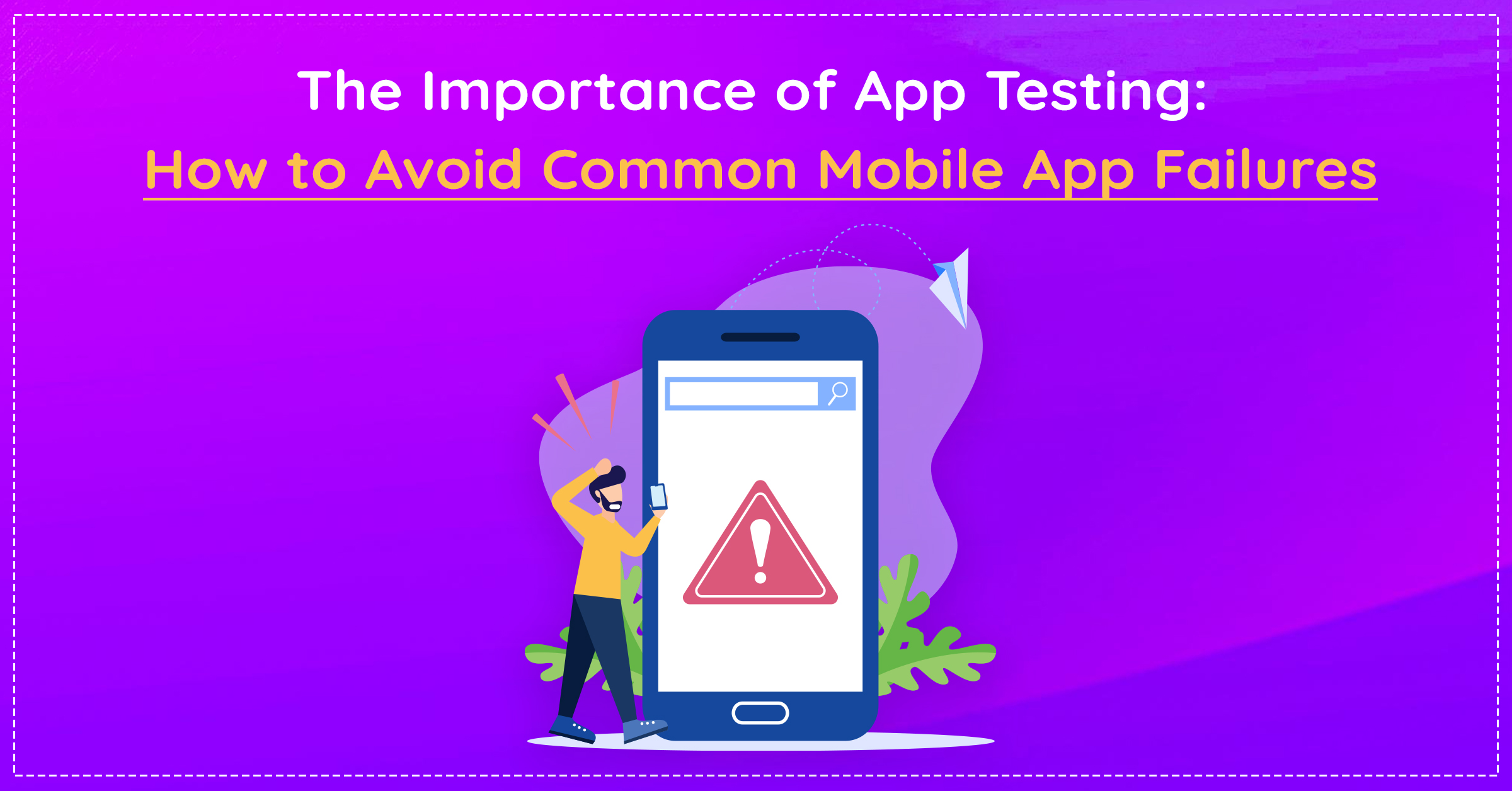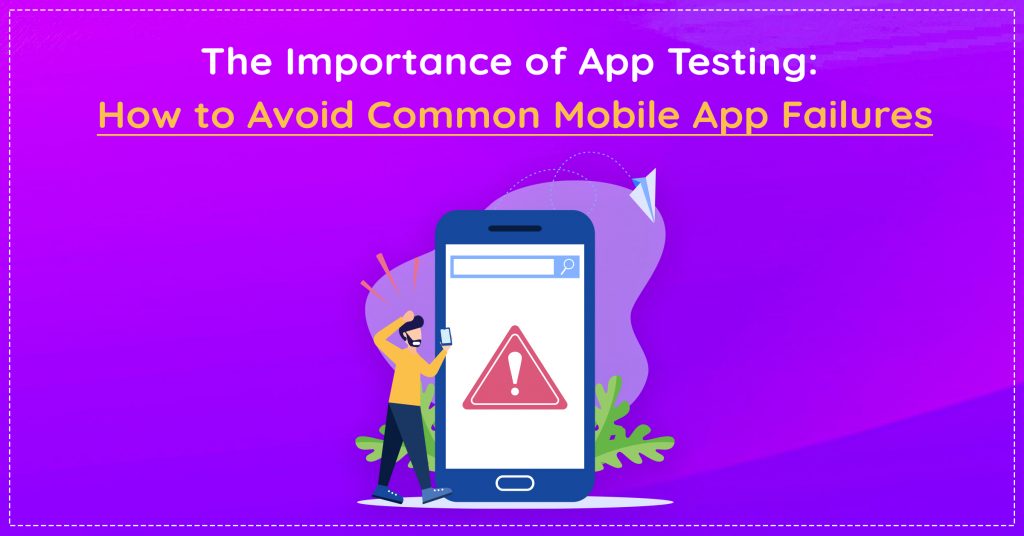In this blog, we will explore the importance of mobile app testing and how it helps prevent crashes, improve performance, and enhance user experience.
Let’s begin!
Every mobile app launch depends on efficient mobile app testing. Though glitches may seem trivial, they are very bad for users, and mobile app developers know this all too well. After All, mobile apps have become too integral to our daily lives to continue accepting such issues.
Mobile app Testing validates the app and its purpose, ensures it is easy to use and abides by the elements necessary for a good image in the marketplace. For this reason, this blog will focus on mobile application testing, its importance, and what are the core addressing techniques for validation.
What is mobile application testing?

Mobile app testing involves verifying the functionality, performance, security, and usability of an app in all mobile environments. It is one of the most important processes of the application development life cycle since it ensures the availability of applications that have met standards before introduction into the market. The mobile testing process also uncovers bugs, performance hitches as well as security risks that can go a long way to improve the quality of the application and user experience during its usage.
Mobile Testing Challenges

Mobile testing can be an intricate activity because there are a number of inherent obstacles that the developers need to tackle. A few of the common mobile testing challenges are given below:
- Device Fragmentation: Testing all possible combinations across all devices is time-consuming and resource-intensive since thousands of devices exist which have different screen sizes, hardware and OS versions.
- OS Compatibility: Every mobile OS behaves differently and has different sets of rules. In the case of Android and iOS, an application would need to be tested on as many versions as possible.
- Network Variability: Mobile smartphone applications require good network availability which necessarily is dependent on the geography and strength of the network. Hence, it’s important to assess the network to which an application would be targeted for deployment.
- Security Issues: Security-related weaknesses are a commonplace occurrence within mobile applications. It is critical to conduct a thorough examination of the application in terms of the potential for data breaches and compliance with privacy laws, especially where personal and financial information is concerned.
- Battery Consumption: Mobile applications tend to shorten battery life significantly. It is important to test the impact of application usage on battery life performance, which will ultimately translate to customer satisfaction.
Why Do Apps Keep Crashing?

Crashing of mobile applications has been a horrible experience for most users. It seems to reduce the interest of the user in the application. This can also result if some or all features integrated into the application become ineffective. Some of the reasons for the app’s failure include:
- Memory Overload: Due to mobile devices’ limited capacity, heavy usage of mobile apps can lead to failures.
- Defects in the Code: Software bugs often cause application crashes. Coding errors, insufficient error management, or not testing features can all be the source of mobile bugs.
- Device Hardware Availability issue: Mobile apps can fail to run if they are not properly configured for the specific device, which can result in crashes.
Performance Testing of Mobile Apps

Mobile app performance testing focuses on and tests the application’s speed and responsiveness as well as the network, device and volume load which the application was designed to work with.
Key aspects of performance testing include:
- Load Testing: This simulates the app’s performance under heavy traffic to ensure it can handle high numbers of concurrent users.
- Stress Testing: Testing the app’s limits by pushing it beyond normal load conditions to see how it reacts under extreme stress.
- Stability Testing: Ensuring that the app remains stable over time and doesn’t degrade in performance with extended use.
Mobile App Automation Testing Tools Open Source
As mobile apps undergo a lot of functionality changes, manual testing approaches can take a lot of time as well as be costly. This has meant that testing automation is on the rise. Open-source mobile app automation testing tools have the advantage of cost assistance for developers and testers.
These tools help eliminate repetitive work by automating functional, performance, and regression testing in any application. Popular open-source mobile app automation tools include Appium, Espresso, and XCUITest.
These tools provide flexibility, scalability, and accuracy in mobile app testing, allowing testers to focus on improving the app rather than spending time on manual testing.
Boost your app’s visibility and downloads with expert App Store Optimization tips.
Mobile App Load Testing
As with all apps, mobile apps also have to go through a load test. Apps can lag or even crash when they get a significant amount of users; therefore, load testing is essential. When too many users try to access an app, it takes a long time to load or even crashes.
This is when users tend to stop using the app, which eventually damages the app’s reputation. It is hence termed mobile app load testing – a virtual load test on the app by simulating server overload to test its operation limits.
You may also like: Native App v/s Hybrid App
Conclusion
The testing of apps is an inevitable part of the mobile application development life cycle. Testing makes sure that applications are working correctly, secured, functioning optimally, and providing a quality experience. It enhances the performance of the applications in other applications and locations.
In order to solve the challenges that mobile testing brings, automation tools and extensive testing practices can aid the application in reaching its desired level.
Proper mobile app testing from reputed development companies like Eiosys enables the developers to avoid the usual issues associated with mobile apps, like crashing or poor speeds, and ensure they satisfy the users. Explore our mobile app development services to learn more or get in touch with us.
FAQs
Apps generally crash because of lots of reasons like memory problems, Bugs in code, device specific problems, or having older versions of the application.
These tools will help automate the testing efforts for mobile applications, saving time and preventing human error. Appium, Espresso, and XCUITest are a few examples.
Load testing ensures that an application would not crash at any point in time, even when there is a heavy influx of users, enabling the application to perform seamlessly under pressure.






